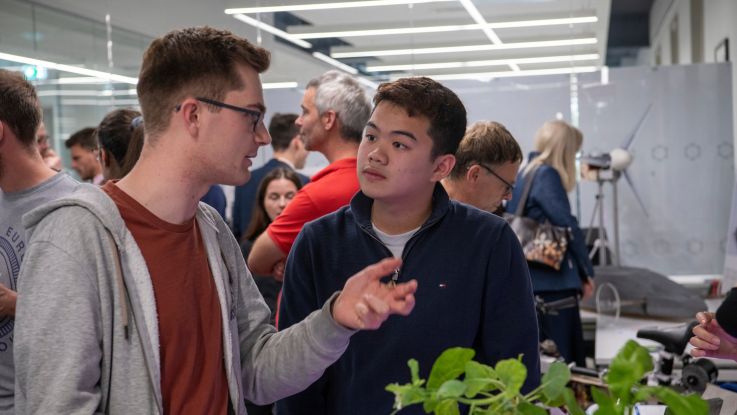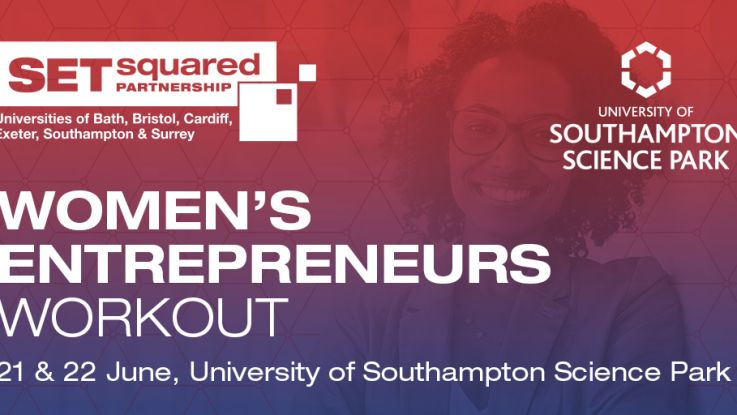

Working out the budget
Southampton Science Park was delighted to introduce BDO as the experts for its Lunch & Learn session on taxation, with an update on what the Chancellor’s spring budget meant for the innovation sector.
Summarising the session, BDO’s Southampton Head of Tax, Jane Mulholland said she thought there was lots in the budget to welcome, with a great deal of attention given to high growth science and technology businesses and a focus on investment. The unanticipated rise in corporation tax for companies with profits over £50k stole the headlines, but there was a lot that science and technology businesses could leverage too, demonstrating that innovation is at the forefront of government planning.
Turning to specifics, Matt Carter, Associate Director - Corporate Tax, outlined company tax news while Laura Hayward, Personal Tax Director, spoke on the subject of personal and employment tax matters.
Business tax
A key topic was whether more could be made of the opportunities that R&D tax credits present. Introduced in 2000, R&D tax credits are an important incentive mechanism by which the government encourages innovation and supports its goal for the UK to become a knowledge-based economy. The overriding aim is to raise total investment in R&D to 2.4% of GDP by 2027.
For every £1 spent on advancing a field of science or technology (in any industry) and there’s a degree of uncertainty about this work, companies can benefit from a tax credit of 25p or 33p depending on their profit status. It is a self-assessed area, so Matt highlighted the need to keep good records, ensure that contracts are right and have R&D claims checked by experts. (This is particularly important this year due to the impact of furloughed staff whose PAYE cost must be taken into consideration with any R&D tax credit claim.)
Matt went on to highlight three elements of the Chancellor’s Help to Grow scheme. These were: a digital grant of up to £5k to help SMEs transform the way they do business through software, the £375m Future Breakthrough Fund on which further details are awaited, and the establishment of freeports.
“The freeport status that the Solent region has been granted is hugely exciting,” he commented. “It means that our region will be one of eight areas that will be targeted for investment and advancement of decarbonisation. This is brilliant news for businesses as it could include multiple tax breaks including national insurance contribution relief and full relief from Stamp Duty Land Tax on the purchase of land or property right up until 2026.”
Matt also highlighted the capital allowance ‘super deduction’, another way in which the government hopes to incentivise business investment, this time in assets. It means that a 130% tax deduction can be applied to plant and machinery assets (including IT equipment and laboratory equipment) until 2023.
Personal tax
In contrast, Laura noted that there wasn’t a great deal of news on the personal tax front, this in line with the government’s election manifesto not to increase personal taxation. She noted that income tax and national insurance thresholds are frozen until 2026 and highlighted a complete silence when it came to capital gains tax and inheritance tax. On these, the Office of Tax Simplification has put forward a number of proposals which are currently being consulted upon, as is the potential for a one-off wealth tax (which could be as much as a 5% charge for all UK residents with assets over £500k). News on the outcome of these consultations is not expected until the autumn.
“This consultation time buys business owners time to make any changes that might be necessary. For example, now is a good time to reassess corporate ownership structures, succession plans, asset ownership and share ownership while there is absolute clarity on these areas,” she said.
Laura also mentioned a pending review of the Enterprise Management Incentives (EMI) scheme which seeks to understand whether it is fulfilling its objectives in terms of recruiting and retaining employees. The hope is that the scheme will be extended to include more high-growth companies.
Finally, there was discussion around the Enterprise Investment Scheme (EIS) and associated Seed EIS. These were unchanged in the budget and this is welcome news as these initiatives are having a positive impact on small companies hoping to grow. They do so by giving investors confidence when considering investment into innovation companies and also supporting their investment through considerable tax reliefs. Knowledge Intensive Companies (KICs) can raise more investment and have special status under the EIS scheme.
The Science Park’s Business Development Director, Jane Holt, moderated an engaging Q&A session, and closed the session by noting the optimism she is witnessing as more people return to their business homes at the Science Park. She commented: “Although there are several detailed updates still to come when the Treasury publishes a number of consultations relating to tax policy on March 23rd, there’s a clear focus on recovery and the investment needed to achieve this. The combination of this innovation-centred budget and freeport status is incredibly good news for science and technology companies based here in the Solent.”
The next Lunch & Learn event builds on these themes.
Attracting Investment will be held on Wednesday 31st March.















































































